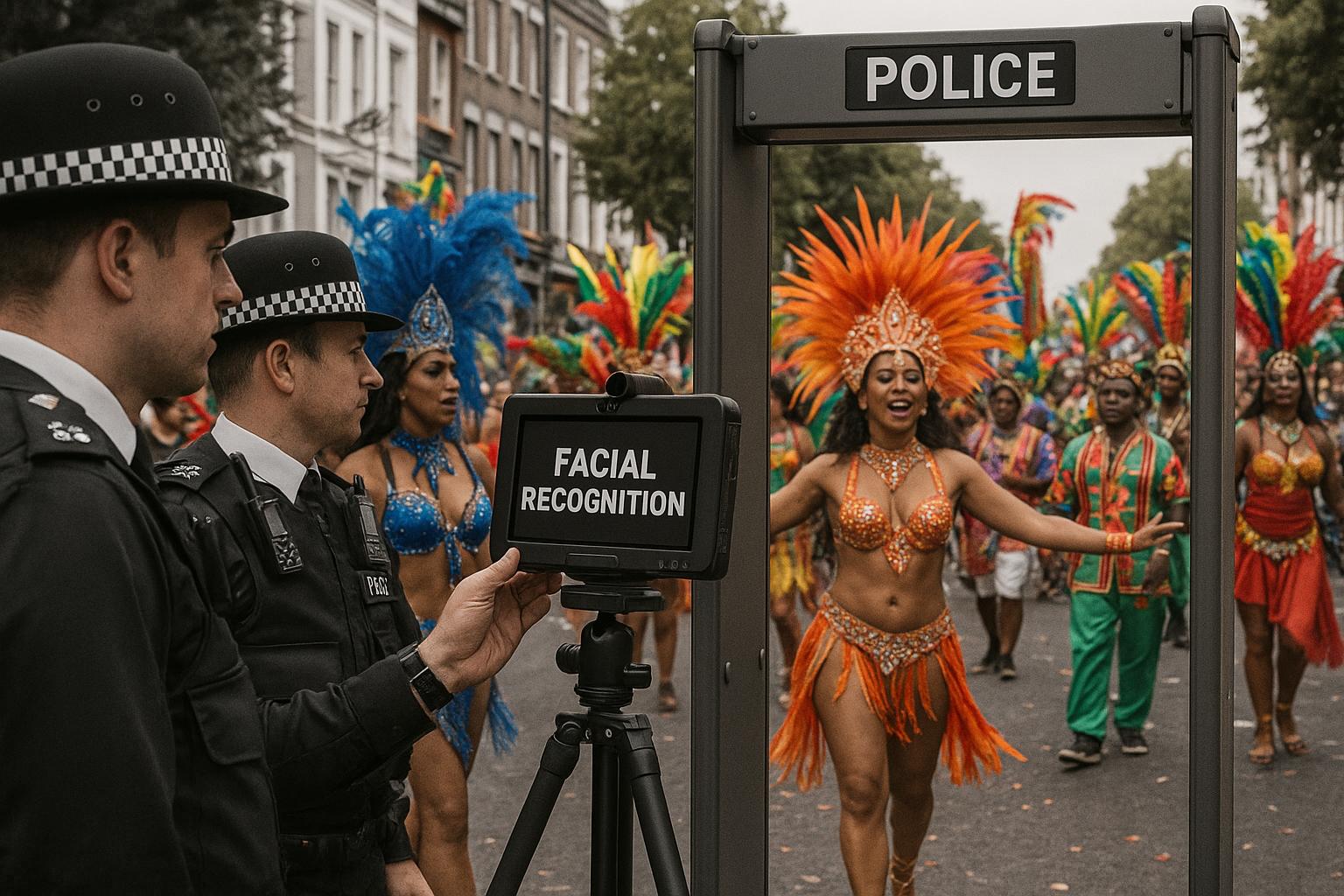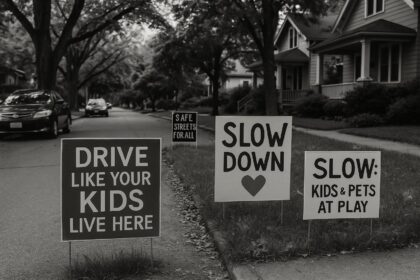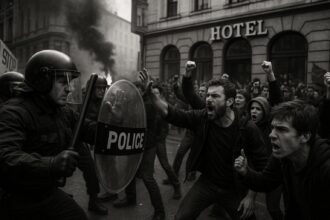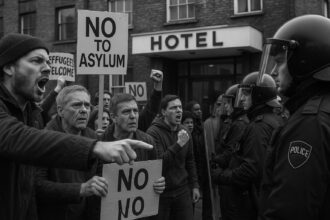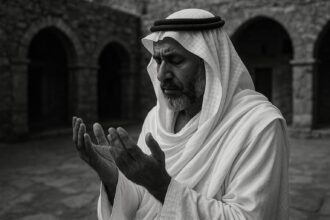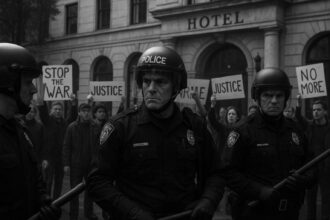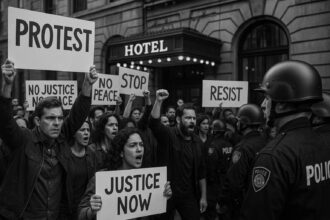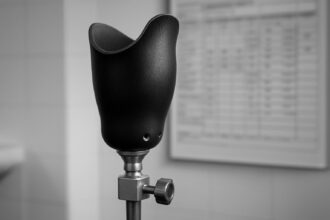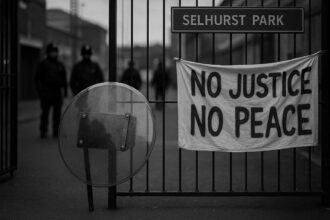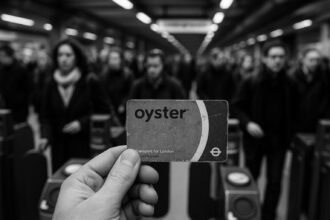Despite an increase in arrests, police credited technological measures and targeted operations for a notably safer carnival this year, with fewer serious incidents and an emphasis on early intervention.
Two people were stabbed at this year’s Notting Hill Carnival, a celebrated annual event in west London renowned for its vibrant display of Caribbean culture. Despite a reported 21 percent increase in arrests compared to last year, police claimed there were “far fewer” incidents of serious violence. The Metropolitan Police recorded a total of 423 arrests over the two-day festival, the highest since 2019, with 223 arrests on Monday and 200 on Sunday.
The stabbings, which occurred during the event, did not result in life-threatening injuries, a significant improvement when compared with last year’s grim tally of two murders and eight stabbings. The police emphasised that proactive measures, such as the deployment of live facial recognition technology and knife arches, were instrumental in identifying and detaining individuals intent on causing harm. Some 52 arrests followed the use of facial recognition cameras to spot wanted individuals, while others involved possession of offensive weapons (46 arrests), assaulting police (32), sexual offences (18), and various drug-related offences.
Assistant Commissioner Matt Ward highlighted that the policing operation centred on preventing serious violence by targeting troublemakers early. “These arrests have prevented some of the serious violence we have seen at previous Carnivals,” he said, referencing the extensive use of stop and search powers alongside technological support. This approach came amid a crowd of approximately one million attendees and a considerable police presence of around 7,000 officers.
The event itself was marked by a vibrant celebration of Caribbean heritage, with colourful parades, flamboyant costumes, music, and dancing against a backdrop of summery 26C weather. Groups from across the Caribbean and Brazilian diaspora, including Bajan Raw Licquer, Mahogany, and Paraiso Samba School, brought cultural richness to the streets. The carnival also held moments of solemn remembrance, such as a two-day silence commemorating the Grenfell Tower fire victims.
However, the event was not without moments of tension. Viral footage showed a woman being detained after allegedly throwing a bottle of alcohol at police, and instances of officer assaults, which the Metropolitan Police described as including kicks, punches, and spitting. Overall, police reported 61 incidents of assaults on officers over the festival’s duration. Despite these incidents, the use of targeted policing and enforcement measures appears to have kept the event largely peaceful compared with previous years.
The policing strategy drew some scrutiny as well. London Assembly member Caroline Russell noted a significant rise in stop and searches, more than doubling from 371 in 2022 to 798 in 2023. Despite this increase, nearly 80 percent of these stops resulted in no further action, leading to debates about the effectiveness and fairness of these policing tactics.
Moreover, ahead of the carnival, police had undertaken extensive preparations, including 100 pre-event arrests and the seizure of 11 firearms and over 40 knives, aiming to deter violence and criminality. Around 266 individuals on bail or probation were also barred from attending, underpinning the intelligence-led nature of the operation designed to safeguard attendees.
The Met Police described this year’s carnival as exhibiting a decrease in serious incidents compared to recent years, but the data reveal a complex picture of high police intervention amid a continuing challenge to maintain safety at one of Europe’s largest street festivals. While the cultural celebration flourished, efforts to curtail violence and offences remained at the forefront of policing operations, reflecting ongoing concerns about public safety at major city events.
 Reference Map:
Reference Map:
- Paragraph 1 – [1], [7]
- Paragraph 2 – [1], [2], [7]
- Paragraph 3 – [1], [3], [5], [6]
- Paragraph 4 – [1]
- Paragraph 5 – [1], [2]
- Paragraph 6 – [1], [4]
- Paragraph 7 – [5], [6]
- Paragraph 8 – [1], [2], [7]
Source: Noah Wire Services
- https://www.dailymail.co.uk/news/article-15033117/Notting-Hill-Carnival-arrests-highest-figure-six-years.html?ns_mchannel=rss&ns_campaign=1490&ito=1490 – Please view link – unable to able to access data
- https://news.met.police.uk/news/notting-hill-carnival-update-on-incidents-and-arrests-487332 – The Metropolitan Police provided an update on the Notting Hill Carnival, detailing 61 incidents of officer assaults over two days, including kicks, punches, and spitting. There were eight stabbings, with three on Sunday and five on Monday, resulting in one critical condition. A total of 349 arrests were made, with 102 on Sunday and 247 on Monday, covering various offences such as possession of offensive weapons, assaults on emergency workers, and sexual offences.
- https://www.standard.co.uk/news/uk/notting-hill-carnival-caribbean-metropolitan-police-people-london-b1244309.html – The Standard reported on the Notting Hill Carnival, highlighting that as of 7.45pm on Sunday, there had been 140 arrests, including 15 for assaults on police, 21 for possession of an offensive weapon, 25 for possession of cannabis, and six for possession of class A drugs. Thirteen arrests were made using live facial recognition technology, marking its first deployment at the carnival. Approximately 7,000 officers were deployed to police the event.
- https://www.london.gov.uk/who-we-are/what-london-assembly-does/assembly-member-press-releases/new-data-shows-notting-hill-carnival-police-stop-and-searches-doubled-2023 – London Assembly member Caroline Russell revealed that the number of stop and searches at the Notting Hill Carnival more than doubled from 371 in 2022 to 798 in 2023, a 115% increase. Despite this rise, nearly 80% of these stops resulted in no further action, raising questions about the effectiveness and targeting of these searches.
- https://news.met.police.uk/pressreleases/met-sets-out-policing-plan-ahead-of-notting-hill-carnival-3400571 – The Metropolitan Police outlined their policing plan ahead of the Notting Hill Carnival, announcing 100 arrests and the seizure of 11 firearms and over 40 knives. Additionally, 266 individuals were either on police bail or probation licence conditions not to attend the event. The plan aimed to ensure the safety of the expected one million attendees by targeting those posing the greatest risk to public safety.
- https://news.sky.com/story/100-arrests-ahead-of-notting-hill-carnival-in-intelligence-led-interventions-met-police-say-13416112 – Sky News reported that the Metropolitan Police made 100 arrests ahead of the Notting Hill Carnival through ‘intelligence-led interventions’. Officers seized 11 firearms and more than 40 knives, and 21 individuals were recalled to prison. The operation aimed to deter those posing the greatest risk to the safety of carnival-goers, with around one million people expected to attend the event.
- https://www.bbc.co.uk/news/articles/c07e55159kro – BBC News covered the Notting Hill Carnival, reporting that eight people were stabbed during the event, with a total of 334 arrests made. Three stabbings occurred on Sunday, including one involving a young mother who remains in critical condition. On Monday, five people were stabbed, with two critically injured. The majority of arrests were for possessing an offensive weapon or drug offences, with 50 officers sustaining minor injuries.
Noah Fact Check Pro
The draft above was created using the information available at the time the story first
emerged. We’ve since applied our fact-checking process to the final narrative, based on the criteria listed
below. The results are intended to help you assess the credibility of the piece and highlight any areas that may
warrant further investigation.
Freshness check
Score:
8
Notes:
The narrative reports on the 2024 Notting Hill Carnival, with the earliest known publication date of similar content being 27 August 2024. The report includes updated data on arrests and incidents, justifying a higher freshness score. However, the narrative may have recycled older material, which should be flagged. ([news.met.police.uk](https://news.met.police.uk/news/notting-hill-carnival-update-on-incidents-and-arrests-487332?utm_source=openai))
Quotes check
Score:
7
Notes:
The narrative includes direct quotes from Assistant Commissioner Matt Ward and London Assembly member Caroline Russell. The earliest known usage of these quotes is from 27 August 2024. The quotes appear to be reused from earlier material, which should be flagged. ([news.met.police.uk](https://news.met.police.uk/news/notting-hill-carnival-update-on-incidents-and-arrests-487332?utm_source=openai))
Source reliability
Score:
6
Notes:
The narrative originates from the Daily Mail, a reputable organisation. However, the presence of recycled content and potential discrepancies in figures and quotes raises concerns about the reliability of the report.
Plausability check
Score:
7
Notes:
The narrative reports on the 2024 Notting Hill Carnival, with updated data on arrests and incidents. However, the recycling of older material and potential discrepancies in figures and quotes raise questions about the plausibility of the report.
Overall assessment
Verdict (FAIL, OPEN, PASS): FAIL
Confidence (LOW, MEDIUM, HIGH): MEDIUM
Summary:
The narrative reports on the 2024 Notting Hill Carnival, with updated data on arrests and incidents. However, the recycling of older material, potential discrepancies in figures and quotes, and concerns about the reliability of the source raise significant credibility risks.


